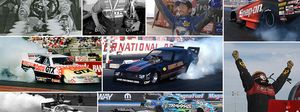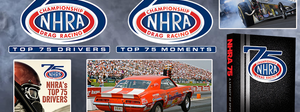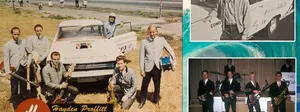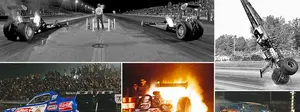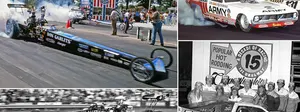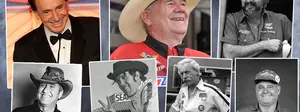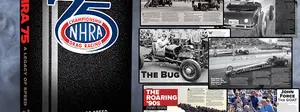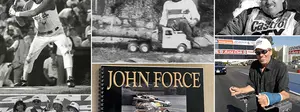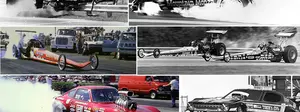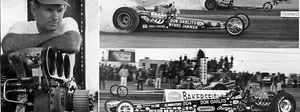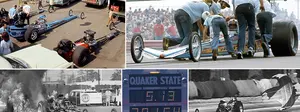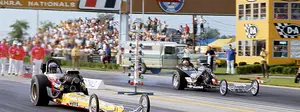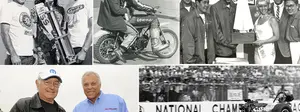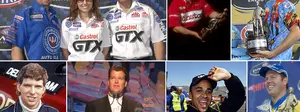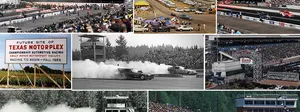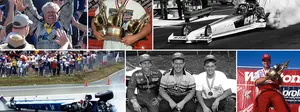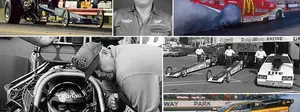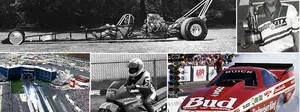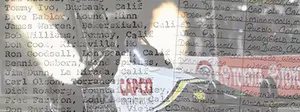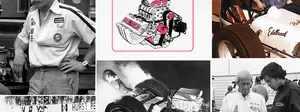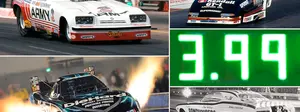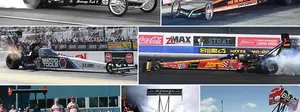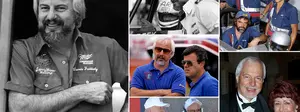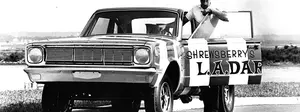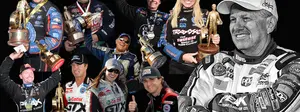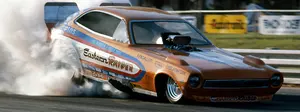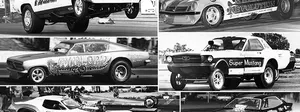'The Likeable Logger'
 |
I don’t remember which of our zany cast of characters here at National Dragster in the 1980s first labeled Top Fuel racer Earl Whiting “the likeable logger,” but whoever it was nailed it spot-on. The Washington state racer, who graduated from being a financial partner watching from the sidelines to a top-line driver in the sport’s quickest and fastest class, was one of the most friendly guys I’ve met in all my years here, and we lost him Tuesday of this week at age 72. Although Whiting had been out of the seat for decades, I'm proud to say that the nickname had remained, and probably not just in our drag racing circle. There aren’t many guys more friendly than he was.
In the early 1980s, Whiting owned Northwest Log Inc. of Hoquiam, Wash. (hoquiam is a Native-American word meaning "hungry for wood"), and he first partnered with Northwest tuning legend (and former driver) Gaines Markley and his driver, Rob Bruins, not long after Bruins won the 1979 NHRA Top Fuel championship.
They raced together like that until the 1982 NHRA Winternationals, where they failed to qualify. Bruins left the team, in part due to personal reasons and in part due to the team’s struggles, and was replaced by SoCal veteran Dwight Salisbury, who later that year won the Mile-High NHRA Nationals. The Whiting & Markley team, however, lost the handle on the tune-up, and by the 1984 Winternationals, it failed to even qualify and was running low on parts. Things looked bleak.
 |
Sitting a few pit stalls down was another dejected team, the Danell brothers – driver Danny and Mike and Bill – former sand racing champions who had burst onto the Top Fuel scene in early 1983 with a stunning victory at the March Meet capped with a final-round upset of Shirley Muldowney and followed with a big win at OCIR’s Nitro Championships event in June. The brothers, who were California cotton, hay, and barley farmers, also had failed to make the cut for the 1984 season opener, and even though they had a stockpile of parts, they didn’t have the financial funding to go on tour.
Can you see where this is headed?
The two camps knew one another through mutual friend Larry Minor – against whom the Danells had raced on the sand and against whom Whiting had raced in boats – and before long, a partnership was struck, contingent on Danny Danell driving. Salisbury was regrettably let go. Markley stayed onboard, though the team was rebranded as Whiting & Danell and had former Kalitta tuner Ron Barrow and young Andy Woods on wrenches.
The efforts of the team were respected by their better-heeled and -experienced peers, including Joe Amato and Minor, who were frequent visitors to their pit area with advice and ideas. That’s how likeable Whiting was.

(Above) Earl Whiting went from team owner to driver and went on to finish in NHRA's top 10 and win two IHRA national events. (Below) This photo from the 1988 Supernationals reflects the disappointment of Whiting, second from right, after he failed to qualify, but Eddie Hill was forever grateful for Whiting's generosity.
|
 |
Unfortunately for all, the logging business took a downturn in the early to mid-1980s, and before long, the car was parked, and when it did return in late 1985, Whiting was behind the wheel. He qualified in his debut at the 1985 World Finals and went on to race for four seasons, enjoying some backing from Valvoline for a short time (before it ended up on Amato’s car). Although Whiting never reached a final round on the NHRA ledger and finished a career-high 10th in 1987, he won two IHRA events – back to back – in 1989 and finished seventh there. From my records, that was his final season as a driver. I wish I knew why.
The one memory that sticks in my mind about Whiting and speaks volumes about his character is from the 1988 Supernationals in Houston. You all remember that race, right? No one had run a four in NHRA competition before that event, but by Sunday evening, Eddie Hill had set the national record at 4.990 and won the race with a stunning final-round 4.93. And he would have never done it without Whiting’s selfless help.
Hill had exploded superchargers on three straight qualifying passes, and broke and befuddled by the banging blowers, he announced in a press release prior to the final qualifying session that he was out of parts and packing it up to head home to Wichita Falls, Texas, to regroup and contemplate the rest of the season.
Several teams, including the Gwynn family, offered parts, but it was Whiting who supplied what many figured would be another sacrificial blower, and it was Whiting who sat on the bump spot of the field when Hill made his final attempt – and knocked Whiting out of the field. Hill, another of the most genial guys to ever step foot on the dragstrip, apologized to Whiting for the deed, but Whiting quickly quieted all of that. “It’s not your fault,” he told Hill. “I should have run quicker.”
That’s just the kind of guy Earl was, and not just at the dragstrip. I got to spend some time on the phone earlier this week with his wife of 52 years, Linda, who was there to see it all.
“No matter what he did, Earl was always very well-liked,” she said. “We’ve had lots of phone calls since we lost Earl, and there hasn’t been one person who had a derogatory thing to say about him, whether it was from the racing world or business world."
 |
Considering the sometimes cutthroat nature of both endeavors, that's really saying something. Whiting at one time employed 150 employees and had 20 trucks rolling in his logging business, but when logging regulations began to strangle his business, he got out of that end of the business and founded Olympic Fiber to serve the pulp and paper industry, supplying the raw material for toilet paper and paper towels for the famed Quilted Northern brand.
Whiting retired from the business several years ago and enjoyed his retirement on two wheels, riding his Harley up and down the coast with Linda and a group called Desert Motorcycle Riders to escape the rainy Washington weather. He came infrequently to the drags – most recently a few years ago as a guest of TJ Zizzo – but never missed a show on TV and was still in love with the Top Fuel class, rooting especially for Larry Dixon, according to Linda. He was slowed after being diagnosed with Parkinson’s disease last summer but still remained a fan of the sport and enjoyed watching John Force’s antics.
Even though she admitted to being anxious when Earl began driving, Linda remembered, “Racing was a real family affair with us. The kids [daughters Cindi and Kristin and son Eric] would come with us to as many races as they could, and we had a great time. It was a neat time in our lives.”
The family will hold an open celebration of life for Earl on Aug. 13 at 2 p.m. at South Sound Manor in Tumwater, Wash.
We’re going to miss “the likeable logger.” RIP, Earl.



